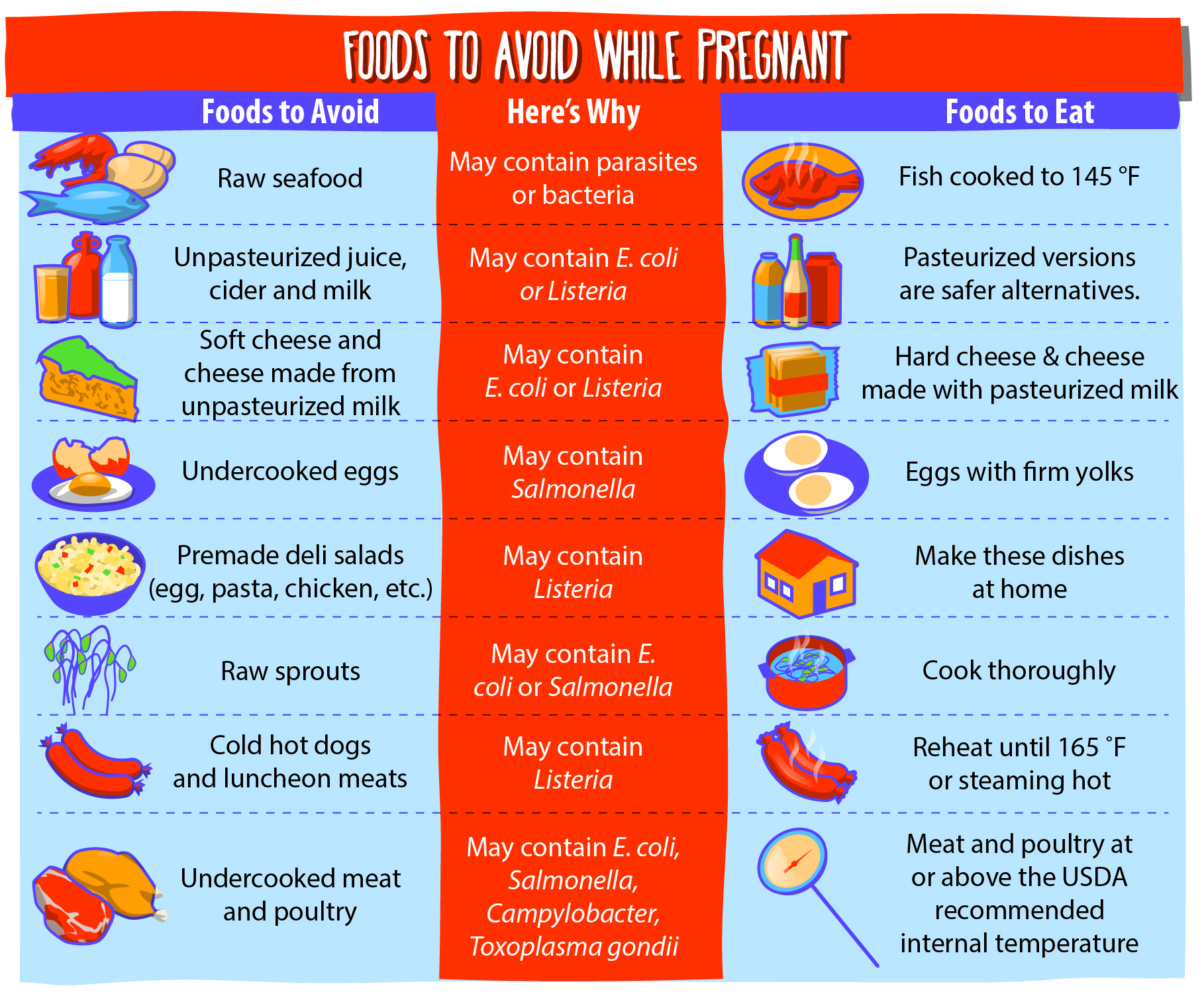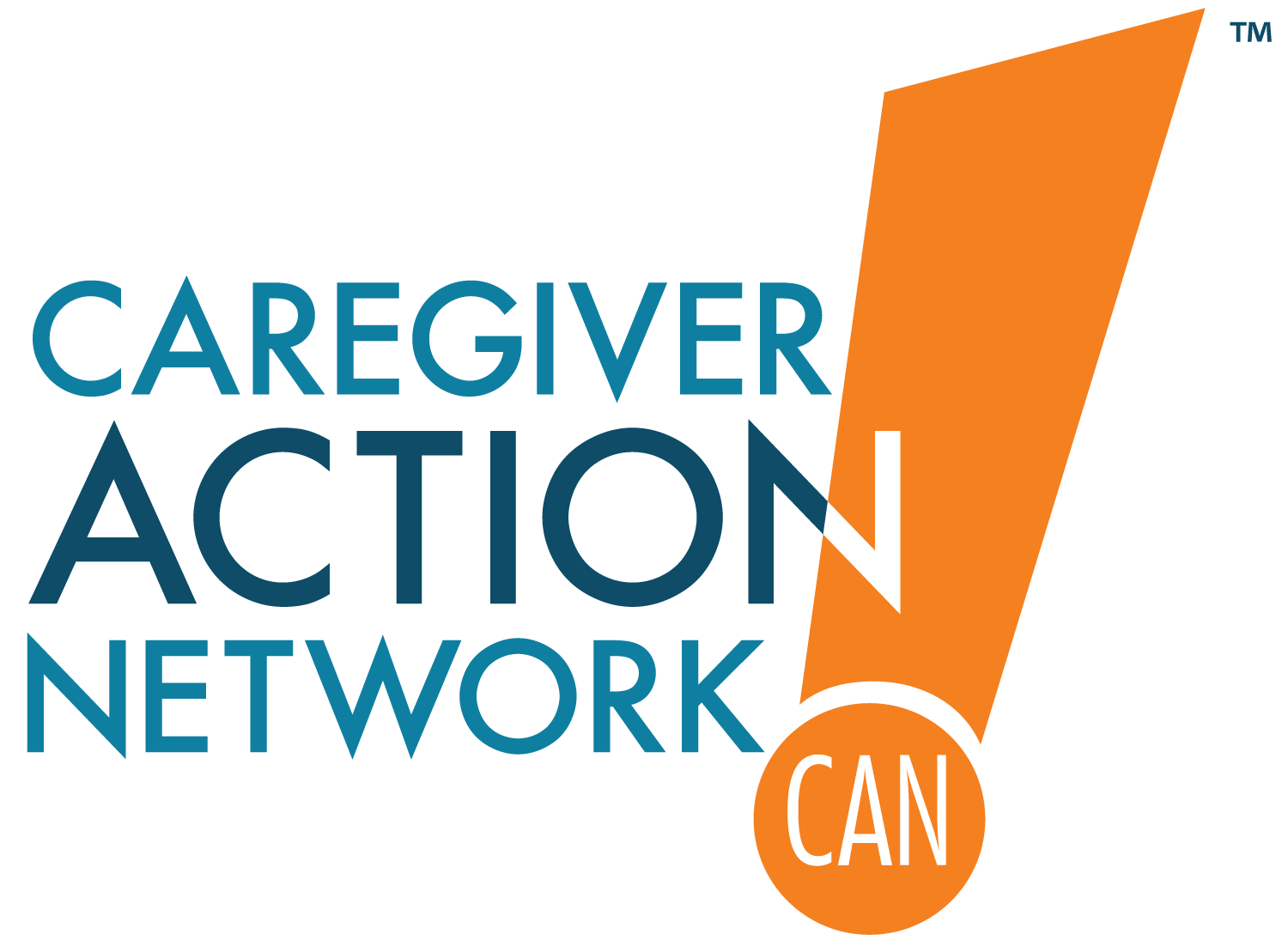When you become pregnant, your body naturally undergoes hormonal changes, some of which also affect your immune system. These changes make pregnant women more susceptible to contracting a foodborne illness. You and your unborn child are particularly at risk for illnesses associated with Listeria monocytogenes and Toxoplasma gondii.
- Listeria monocytogenes is a harmful bacterium found in many foods. Listeria monocytogenes can lead to a disease called listeriosis. Listeriosis can cause miscarriage, premature delivery, and serious sickness or death of a newborn baby.
- Toxoplasma gondii is a parasite found in numerous food sources, as well as dirty cat litter boxes and other areas where cat feces can be found. Toxoplasmosis can cause hearing loss, mental retardation, and blindness in babies.
These infections can pass to the fetus even if the mother shows no symptoms.
The good news is that you can make an effort to select and prepare foods to prevent contracting these and other foodborne diseases.
This section is written especially for you to help show you how to protect yourself and your unborn baby from contracting a foodborne illness.

What You Can Do During Pregnancy
Choose Your Seafood Carefully
Fish and other seafood are excellent sources of protein and Omega-3 fatty acids that are important for fetus development. Fish can be part of a healthy diet, but pregnant women should avoid fish with high levels of mercury. High levels of mercury act as a neurotoxin that can be harmful to the nervous system. A fetus’ developing nervous system is particularly vulnerable.
The following fish could potentially contain high levels of mercury that could harm the development of a baby’s nervous system and should be avoided: swordfish, shark, king mackerel, and tilefish.
Talk with your doctor if you have any questions about how much, and which fish, you can eat.
- Avoid Raw Seafood
- Raw seafood may contain parasites or bacteria, including Listeria, which can make pregnant women ill and could potentially harm their babies. All seafood dishes should be cooked to 145 °F. This means that you should avoid sushi, sashimi, raw oysters, raw clams, raw scallops and ceviche.
- Be Selective with Smoked Seafood
- Refrigerated smoked seafood presents a very real threat of Listeria. Refrigerated smoked seafood, such as salmon, trout, whitefish, cod, tuna, or mackerel are often labeled as Nova-style, lox, kippered, smoked, or jerky. Refrigerated smoked fish should be reheated to 165 °F before eating.
- It is okay to eat smoked seafood during pregnancy if it is canned, shelf stable, or an ingredient in a casserole or other cooked dish.
Avoid Unpasteurized Juice or Cider
Unpasteurized juice, even fresh squeezed juice, and cider can cause foodborne illness. These beverages have been linked to outbreaks of E. coli O157:H7. This strain of E. coli can result in liver failure and death. Individuals with reduced immunity are particularly susceptible.
To prevent E. coli infection, either choose a pasteurized version or bring unpasteurized juice or cider to a rolling boil and boil for at least one minute before drinking.
Avoid Unpasteurized Milk
Milk that has not been pasteurized may contain bacteria such as Campylobacter, E. coli, Listeria, Salmonella or Mycobacterium tuberculosis.
To avoid foodborne illnesses, drink only pasteurized milk.
Avoid Soft Cheeses and Cheese Made from Unpasteurized Milk
Soft cheeses tend to be made with unpasteurized milk. When pregnant, a woman should avoid the following cheeses that tend to be made with unpasteurized milk: Brie, feta, Camembert, Roquefort, queso blanco and queso fresco. Instead of eating soft cheese, eat hard cheese such as Cheddar or Swiss.
Pregnant women who want to continue to eat soft cheeses should make sure to check the label to ensure that the cheese is made from pasteurized milk.
Pregnant women should pay particular attention at farmers markets to make sure that fresh and soft cheeses are pasteurized.
Only Consume Cooked Eggs
Undercooked eggs may contain Salmonella. To safely consume eggs, cook them to 160 °F or until the yolks are firm to be sure any Salmonella that may be present has been destroyed. If you are making a casserole or other dish containing eggs, make sure the dish is cooked to a temperature of 160 °F.
The following foods may contain raw eggs should be avoided: eggnog, raw batter, Caesar salad dressing, tiramisu, eggs benedict, homemade ice cream and hollandaise sauce. Any batter that contains raw eggs, such as cookie, cake or brownie batter, should not be consumed uncooked by pregnant women. The batter may contain Salmonella, which can make a pregnant woman very sick.
To safely consume these products, bake them thoroughly. No matter how tempting, do not lick the spoon.
Avoid Premade Meat or Seafood Salad
Pregnant women should not consume premade ham salad, chicken salad or seafood salad, which may contain Listeria. These items are commonly found in delis. Make these salads at home and follow the four steps of food safety: clean, separate, cook and chill.
Do Not Eat Raw Sprouts
Raw or undercooked sprouts, such as alfalfa, clover, mung bean, or radish sprouts may contain E. coli or Salmonella. For safety, cook them thoroughly.
Avoid Undercooked Meat and Poultry
All meat and poultry should be thoroughly cooked before eating. A food thermometer should be used to ensure that the meat has reached the USDA-recommended safe minimum internal temperature. See the next page for the minimum safe cooking temperatures for specific details. Following the minimum recommended internal temperature is important because meat and poultry may contain E. coli, Salmonella, Campylobacter or Toxoplasma gondii.
- Cook meat to the USDA recommended safe minimum internal temperature.
- Freeze meat for several days at sub-zero (0 °F) temperatures before cooking.
- Wash cutting boards, dishes, counters, utensils and hands with hot soapy water after contact with raw meat, poultry, seafood or unwashed fruits or vegetables.
Reheat Hot Dogs and Luncheon Meats
While the label on these products may say “precooked or fully cooked,” pregnant women should reheat these meats to steaming hot or 165 °F before eating.
These meat items may contain Listeria and are unsafe to eat if they have not been thoroughly reheated: hot dogs, luncheon meats, cold cuts, fermented or dry sausage, and any other deli-style meat and poultry.
Be Selective with Meat Spreads or Pâté
Unpasteurized meat spreads or pâté may contain Listeria.
To consume these products safely when pregnant, eat canned versions. Do not eat refrigerated pâtés or meat spreads as they have high likelihood of containing Listeria.
